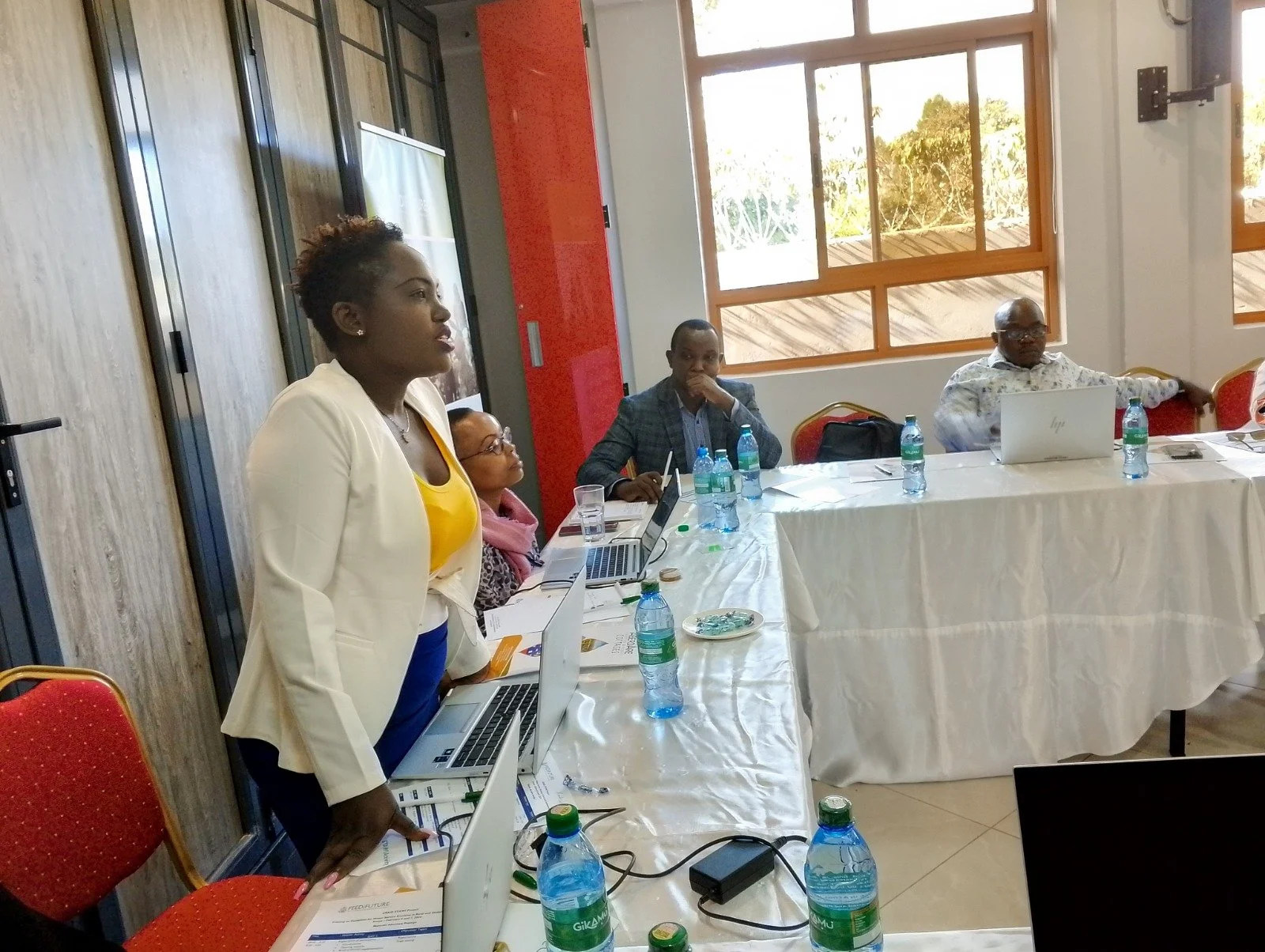Bridging the gap in Water Sector coordination.
Ms Eunice Kivuva addressing a workshop
Eunice Kivuva, a water governance expert working with USAID STAWI as a policy and regulatory specialist, shared her experiences and insights from her research on water sector coordination in Kenya. Her journey into water governance research began when she was nominated by her former organisation, the Centre for Social Planning and Administrative Development (CESPAD), to apply for a position as a Professional Research Fellow (PRF) for the Accountability for Water program.
Her research focused on the challenges of sector coordination within Kenya's water sector, particularly in Water Resources Management. She explains, "One of the major challenges in the water sector is, institutions working in silos This has resulted in duplication of work and mismanagement of resources, and this prompted me to focus my research primarily on water resources management."
Her study in Baringo County involved engaging various stakeholders, including government institutions, county departments of water and climate change, water utilities, and citizen groups, mainly the youth and women. Her findings revealed significant disconnects between different institutions, often stemming from unharmonised policies. She noted: "Different institutions across various sectors use different sector policies to guide their operations. For example, the irrigation and agriculture sectors focus so much on utilising water to enhance food security, without considering the management of this resource."
Another key issue Eunice identified was the lack of social inclusion in water governance. "The engagement of the citizens in terms of development, planning and implementation of these policies is a key gap that affects the participation of the citizen groups," she stated. She also noted that information necessary for public participation is relayed to citizens very late, barring them from decision-making processes, thereby being left behind.
To address these challenges, Eunice recommends institutionalising coordination forums and improving citizen empowerment in water development processes. She is already seeing the impact of her research across Kenya. She explained: "In terms of the findings and the recommendations, this applies to the whole country because Kenya is facing issues of water service provision and especially governance issues that result from isolation and disconnect between the sector institutions."
Eunice is optimistic about the long-term impact of her research. She believes that by fostering collaboration between different stakeholders, it will be possible to accelerate progress towards universal water access. She explained: "If we can work together in a coordinated way, considering the differences in capacity and resources that the institutions have, then it is possible to address the water issues right from resource management to service provision. Through this collaboration, we can accelerate the realization of universal water coverage."
Looking to the future, she emphasizes the need to consider climate change in water governance strategies. She also reflects on the challenges and rewards of her research, noting that while conflict-prone areas were difficult to access, the cooperation from local stakeholders was particularly rewarding.
In closing, Eunice expressed gratitude for the support she received during her research and called for wider dissemination of her findings. She emphasised the importance of sharing the research beyond the immediate context: "I recommend this report to be considered and should be shared widely.”

